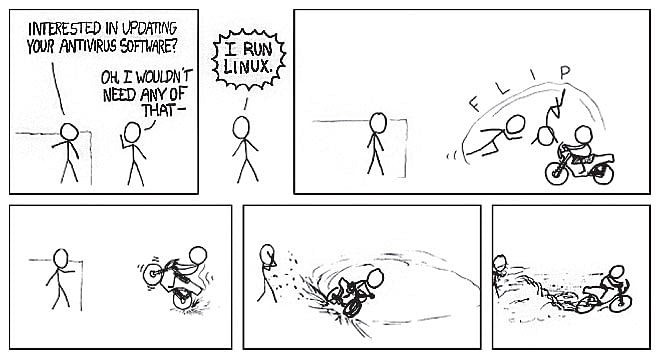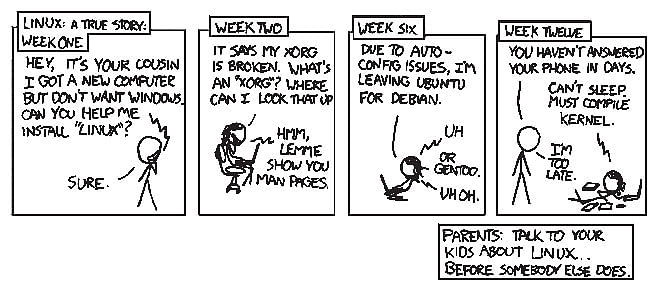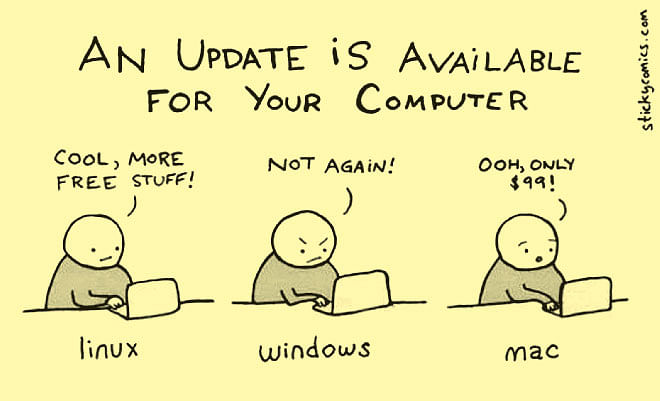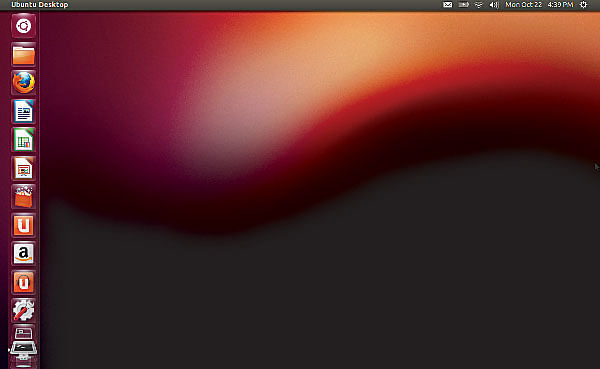Totally Legal Computer

Piracy is an interesting concept. We've all done it at some point, but that doesn't change the fact that it's wrong. Even though few, if any, get caught, it still remains illegal. The advent of the torrent allowed us to illegally download anything and use anything we want, whenever we want. On the other hand, most of us in Bangladesh aren't left with many options since original copies of Windows, Microsoft Office, etc are quite difficult to find, and you're never sure if you just wasted 2000 bucks on something the shopkeeper downloaded over his slow internet connection.
This is where computers assembled under the “Free and Open Source Software (FOSS)” model come in. For the uninitiated, open-source software is essentially software whose code is open to the public; computer geniuses can mess around with it and make it better but we don't care about that. We only care about the fact that it's FREE to download and use. The developers accept donations though.

THE OPERATING SYSTEM:
The OS is the core of your computing experience. There's no point trying to run a fully legal setup if the base of it is illegal. Windows and Mac OS are the most known operating systems, however they aren't free. USD 200 for an original copy of Windows 8 seems like a lot when you're used to running BDT 60 pirated copies of Windows. (Don't buy Windows 8 though. That's a story for another day).
In comes Linux. Linux is an operating system developed by Linus Torvalds under the free and open-source development and distribution. Linux is often seen as the champion of the open-source cause, being, perhaps, the most well-known example of open-source collaboration second only to Mozilla Firefox.
Linux comes with various distributions, better known as “distros”. In layman's terms, distros are different versions of operating systems based on the Linux kernel. Linux distros have taken on a variety of forms: from desktop computing to mobile phones and everything in between and beyond. Yes, that means motorised rickshaws can run Linux as well.
For beginners, the distro of choice is Ubuntu. It's the easiest to set up and perfect for learning the ropes if you're new to the world of Linux. Is it the best distro? Well that is up to you and your needs. But if it comes to learning how the entire eco-system of Linux works, Ubuntu is the best starting point.
Other distros for desktop environments worth checking out are Kubuntu, Mint, Fedora and Debian.
Laptop and older system users would do well to try out Crunchbang, Bodhi Linux and Puppy Linux since they are minimalist OSs designed to use low system resources.
If you're not too keen on changing from Mac or Windows, Pear Linux and ZorinOS can make the change to Linux easier with user interfaces that resemble Mac and Windows respectively.
It might be a tad overwhelming to install Linux on a system for someone who hasn't dabbled into their computer's ins and outs once in a while, but the installation process is pretty straightforward.
1. Download Ubuntu from the following link: http://www.ubuntu.com/download/desktop
I recommend downloading Ubuntu 12.04 LTS for a more stable, hassle-free version of the OS.
2. You can install Ubuntu by booting from a DVD after burning the .iso image onto a disc, but booting from USB is easier. You need to download and install Pendrive Linux's USB Installer for that. (http://www.pendrivelinux.com/universal-usb-installer-easy-as-1-2-3/)
3. After you're done with successfully burning the ISO image to the USB, restart your computer. It should boot automatically from the USB, but if it doesn't press F12 on the boot menu and rearrange the boot order by moving your USB to the top.
Note: You should backup ALL your data to a large number of USBs or an external hard drive before you install, or reinstall, any operating system.
After that, it's smooth sailing, generally speaking. 
THE APPLICATIONS:
Linux's open-source nature is a coin toss. On one hand it means, many commercial software like Microsoft Office or Photoshop won't work. But on the flipside, there are more than enough able open-source alternatives.
LIBREOFFICE:
Ubuntu already comes with LibreOffice installed. From documents to spreadsheets to presentations and more, LibreOffice has the tools you need to get things done and forget Microsoft Word forever. Just so you don't become paranoid about abandoning Microsoft Office for some “alternative” software and worry about it crashing every two seconds, this article was written in LibreOffice without any hitch. Granted, Micorosoft's word processor has better formatting options. If you still feel like abandoning MS Office is wrong, you can still run it on your Linux system. We'll get to that later.
GIMP:
Not everyone uses Photoshop, but for those that do it's indispensable. A free open-source alternative for Photoshop on Linux would be GIMP (GNU Image Manipulation Program). GIMP offers a wide array of tools similar to Photoshop and is as good as you're going to get if you're looking for a no-cost alternative. The user interface is quite different from that of Adobe's, but there's a version of GIMP that mimics the look and feel of Photoshop so that people can migrate easily.
Google CHROME:
Yes, Google Chrome works on Linux. Even though Mozilla Firefox comes with Ubuntu and is truly open-source, it's hard to pull away from Google Chrome. If you want to stay truly open-source you can try Chromium but that comes without a few of the tools, like Adobe Flash Player, that makes Google Chrome so awesome
CLEMENTINE:
Linux has a pretty big selection when it comes to music players, and more often than not, music players are a personal choice. Clementine is easy to use, has a good set of features, and doesn't take long to get used to.
WINE:
More often than not, the big guys of the software world forget Linux. Wine can help ease the pain. If there's a Microsoft program you simply can't do without like Photoshop or World of Warcraft, Wine can run the program on your Linux desktop. It doesn't work with all programs, but it works with the important ones.
Linux's app store isn't the most well-equipped. It takes a while to get the hang of using Linux and moving from the more polished commercial software to less user-friendly alternatives, but sometimes, it's worth it. Heck, most die-hard Windows users prefer Ubuntu over Windows 8. At the end of the day, if you still feel that a legal computer isn't worth it, remember that you will spend (arguably) less time in Hell than your pirate friends due to the legal nature of your computers.


 For all latest news, follow The Daily Star's Google News channel.
For all latest news, follow The Daily Star's Google News channel. 



Comments